Frequently Asked Questions
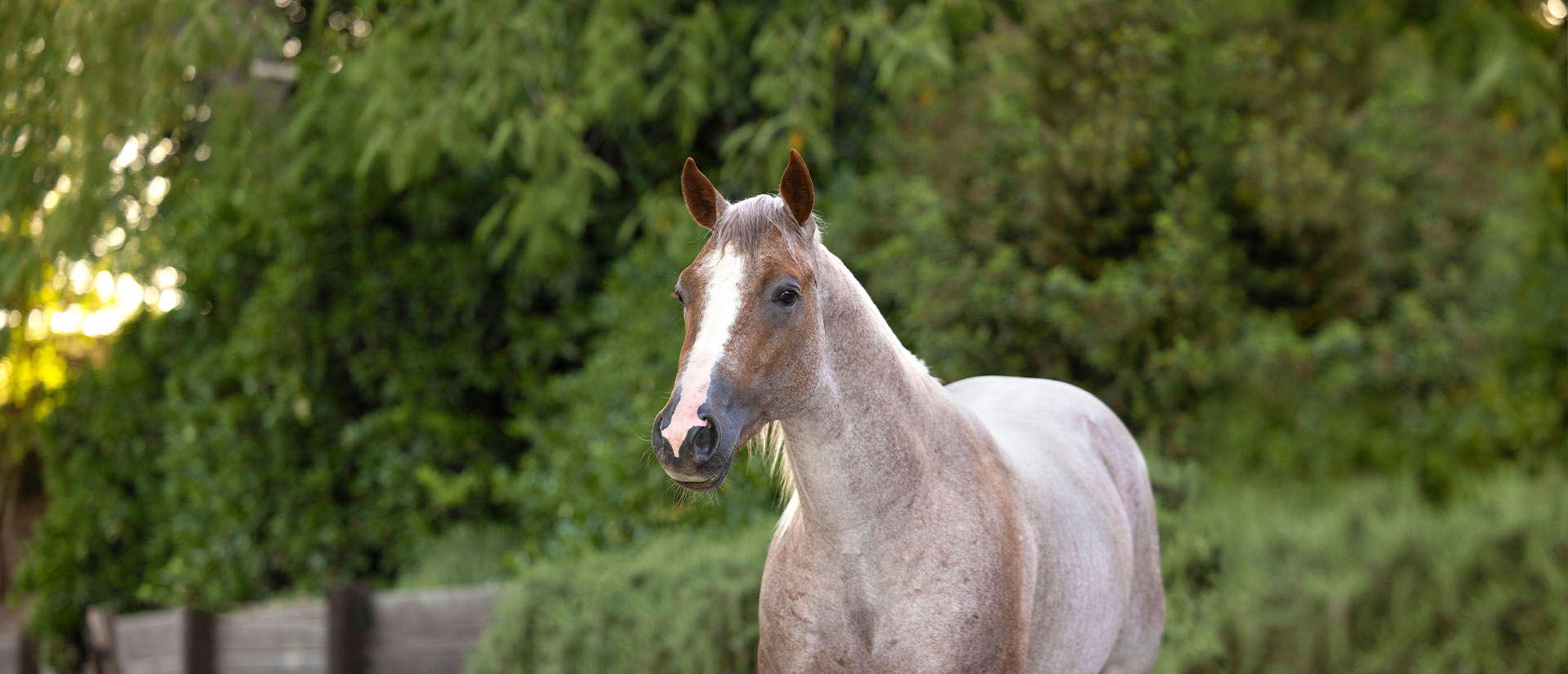
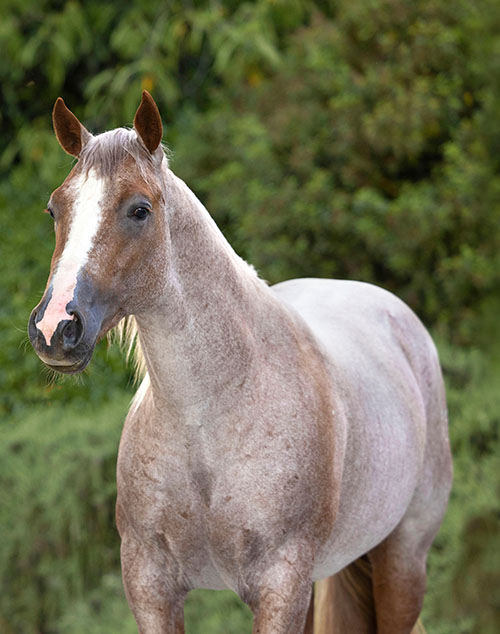
Are Triple Crown feeds produced in ionophore free facilities?
Triple Crown Feeds are made in facilities that we personally inspect and certify. We require mills producing our feeds to meet the FDA’s Feed Safety and Modernization Act requirements. Mills must also have HAACP certifications and other quality assurance programs in place. All Triple Crown Feeds are made in ionophore free (rumensin-free) manufacturing facilities.

Who manufactures Triple Crown feed?
Triple Crown is produced by a few manufacturers around the country. We’d be happy to share your local Triple Crown manufacturer — just let us know where you purchase your feed via email at info@triplecrownfeed.com, or over the phone with a Triple Crown Expert at 800-451-9916.
Our chopped forages are made exclusively at our facility in Ada, MN. Check out this video on the manufacturing process for our forages.
Do you have product comparisons for Hygain feeds?
How can I see if my feed is fresh?
Reading a date code will tell you when your bag was produced. Triple Crown is produced by a few manufacturing facilities around the United States and the date codes will vary depending on where you live.
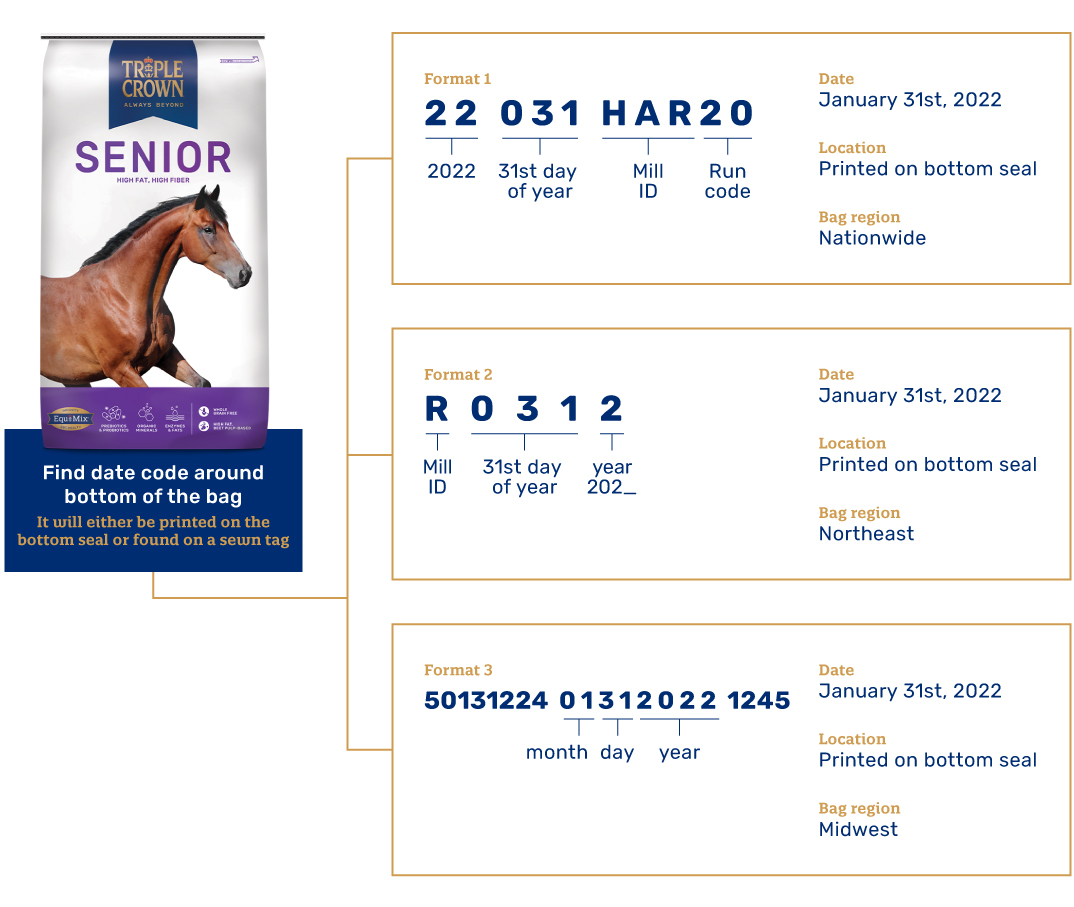
What are the starch and sugar levels of your products?
Monitoring your horse’s starch and sugar intake is important — especially if you have a senior or metabolic horse. Please refer to our “Product Average Carbohydrate Values” chart below or contact a Triple Crown Expert at 800-451-9916.
How can I compare Triple Crown products side-by-side?
If you would like help comparing the Triple Crown products side by side, send us an email at info@triplecrownfeed.com
Do you have GMO-free products?
Triple Crown offers a GMO-free feed line called Triple Crown Naturals.
My horse may have a food allergy, do you have an ingredient list for your products?
Whether your horse has true allergies or gut issues creating feed ingredient sensitivities, it’s important to figure out why. A skin allergy test may be necessary for your horse or trying an “elimination diet” to see if it helps subside the issues. Here is a comprehensive product ingredient guide of all of our products.
What are the facts behind common Alfalfa myths?
FEEDING MYTH: Alfalfa is high in sugar.
FACT: Quality alfalfa hay is generally lower starch & sugar (NSC) compared to grass hay! Alfalfa is a legume forage & is helpful for horses that need a lower sugar hay. It also has more protein & calories, making it ideal for horses that are active & need to maintain weight or muscle.
FEEDING MYTH: Alfalfa is bad for horses.
FACT: Quality alfalfa hay is a nutrient-dense hay with higher protein & calories than most grass hays. It’s also generally lower in NSC (starch/sugar) compared to grass hay. This makes it ideal as part of a forage diet for horses with higher protein needs like hard keepers, performance horses, breeding animals and underweight horses.
FEEDING MYTH: Alfalfa makes horses “hot”.
FACT: Alfalfa hay is often blamed for making horses “hot”. This misconception is due to a belief that the higher protein and calories contributes to excitability. However, the protein in alfalfa hay is not a source
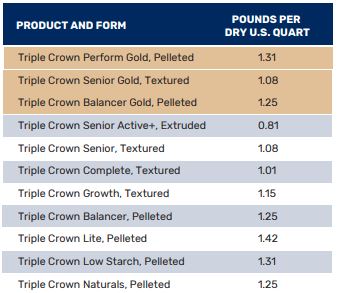
What are the facts behind common Beet pulp myths?
FEEDING MYTH: Beet pulp is high in sugar.
FACT: Beet pulp is a high fiber, highly digestible ingredient made from sugar beets. The sugar is removed from the sugar beet and the remaining portion is a fibrous, energy rich by-product known as beet pulp. It is lower in starch and sugar — the average NSC is below 18%.
FEEDING MYTH: Beet pulp is a filler.
FACT: Beet pulp as an ingredient is a quality source fiber and calories. Research even shows that beet pulp is easier to digest than most hay sources. Most horses find it palatable as well.
FEEDING MYTH: Beet pulp can’t replace hay.
FACT: Beet pulp and beet pulp-based feeds can replace hay in many situations — especially during a forage shortage. Beet pulp is a great source of fiber and calories and is easy to chew. It is ideal for senior horses or those with teeth issues. It is also virtually dust free compared to hay — making it a great choice for horses with respiratory issues.
What are the densities of your feeds?
This chart shows what each feed weighs in a 1 quart scoop.
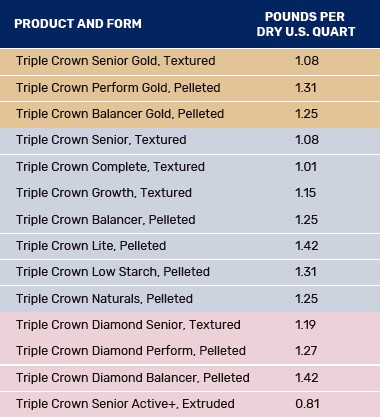
Do you have a feed selection chart?
This quick feed guide shows various life stages and feeding situations. The following are recommended options. To best meet the needs of your horse and to answer any additional questions, please reach out to a Triple Crown representative.
Do you have any sponsorship opportunities?
Please connect with your local Triple Crown representative to see if any opportunities exist.